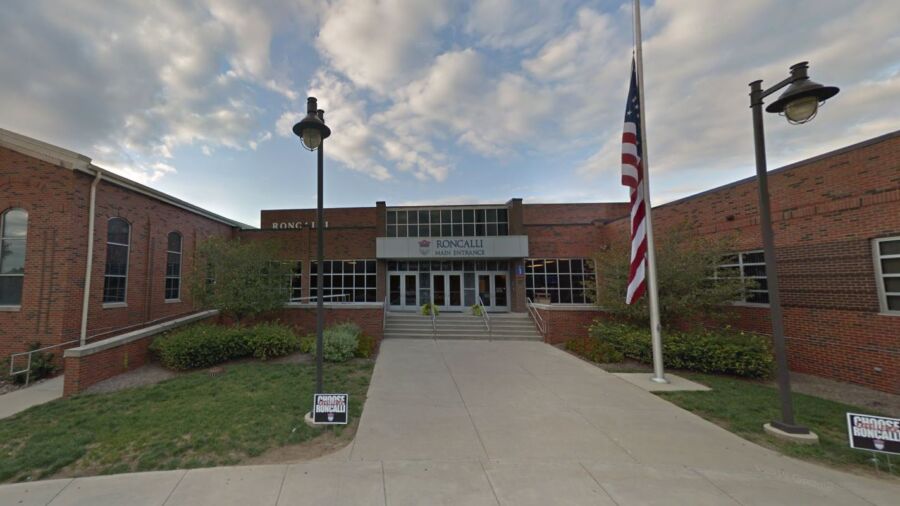A federal appeals court has ruled that a private Catholic high school in Indiana had the right to not continue employing two different guidance counselors who had entered into marriages that conflicted with the school’s religious principles.
On Thursday, a three-judge panel on the U.S. 7th Circuit Court of Appeals ruled (pdf) unanimously that the Roncalli High School, the private Catholic school, could terminate its employment relationship with guidance counselors Michelle Fitzgerald and Lynn Starkey, after learning that both had entered into respective same-sex marriages.
Ms. Fitzgerald had worked with the Catholic school for 14 years in the guidance department, but in 2018 the school declined to renew her annual employment agreement. After Ms. Fitzgerald was placed on administrative leave, Ms. Starkey came forward to inform the school that she too was in a same-sex marriage. The Catholic school similarly chose not to renew Ms. Starkey’s one-year employment agreement.
Circuit Judge Amy J. St. Eve, an appointee of President George W. Bush, heard the case alongside Circuit Judges Michael Brennan and Joel Flaum, who were both appointed by President Donald Trump.
The two laid-off guidance counselors challenged the Catholic school’s decision in federal court, arguing that it violated Title VII of the Civil Rights Act of 1964, citing employer discrimination on the basis of sex. The school defended its employment decision, arguing that Title VII includes a ministerial exception, so as to not violate the portion of the First Amendment that states, “Congress shall make no law respecting an establishment of religion, or prohibiting the free exercise thereof.”
The private school argued that Ms. Fitzgerald and Ms. Starkey did serve in a ministerial capacity as part of the school’s administrative council. The private school had also implemented, with Ms. Fitgerald’s assistance, an evaluation process for its employees that “seeks to identify in specific ways” how those employees are living out the school’s religious mission and tenets.
The school also contended that during the course of her employment as a guidance counselor, Ms. Fitzgerald emphasized her use of religious teaching in her guidance counseling practice. According to the ruling, Ms. Fitzgerald argued that she had exaggerated her religiosity to advance her continued employment.
“Fitzgerald now contends that she exaggerated her involvement in the religious components of the school because ‘it was part of the rubric’ and she ‘wanted to get a raise in pay.” But this does not help her case,” the court ruling states. “Even if we accept that she exaggerated on her evaluation and did not actually perform these religious duties, the fact that she mentioned these activities in her self-evaluation to get a raise supports that she understood these criteria to be important to the school.”
Defense Declares Victory For Religious Schools
Becket Law, a law firm focused on religious liberty cases, celebrated the court’s decision on Thursday.
“Religious schools exist to pass on the faith to the next generation, and to do that, they need the freedom to choose leaders who are fully committed to their religious mission,” said Joseph Davis, a member of Becket Law’s counsel. “The precedent keeps piling up: Catholic schools can ask Catholic school teachers and administrators to be fully supportive of Catholic teaching.”
“Today’s ruling is common-sense: decisions about who conveys the Catholic faith to Catholic school children are for the Church, not the government,” Davis added. “Many parents entrust their children to religious schools precisely because those schools help to pass on the faith, and this victory ensures they remain free to do so.”
Rachel Laser, President and CEO of Americans United for Separation of Church and State, which supported Ms. Fitzgerald’s case, condemned the court’s ruling on Thursday.
“Shelly Fitzgerald, like most employees at religious organizations, wasn’t hired to minister to students or to preach the Catholic religion. She was hired to provide secular guidance to students seeking to get into college,” Ms. Laser said on Friday. “She should not have lost her civil rights simply because the secular work she performed was done at a religious school.”
Ms. Laser placed the appeal’s court’s decision alongside the U.S. Supreme Court’s last month in the case of 303 Creative LLC v. Elenis. In that case, the Supreme Court ruled 6–3 in favor of a Christian website designer who wanted to be able to refuse to design websites that conflicted with her religious views, including her views on same-sex marriage.
“Religious extremists are waging a crusade to undermine basic civil rights and won a disturbing victory before the Supreme Court in the 303 Creative LLC v. Elenis case just two weeks ago,” Ms. Laser said. “Shelly Fitzgerald’s case was another line of attack. These religious extremists are trying to expand a narrow, commonsense rule – meant to allow houses of worship to select their own clergy according to their own faith – into a broad license to circumvent civil rights laws and to discriminate.”
NTD News reached out to Ms. Fitzgerald’s attorneys for further comment about the case and possible plans for appeal, but did not receive a response by the time this article was published.


